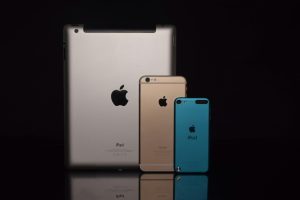Exploring the Tiny World of Single-Board Computers Like Raspberry Pi
“);
The world of computing has come a long way since the days of large mainframes and bulky desktop computers. Nowadays, there is a growing trend towards smaller and more compact computers, known as single-board computers or SBCs. These tiny computers pack a lot of computing power in a small form factor, making them ideal for a variety of uses. One such SBC that has gained immense popularity is the Raspberry Pi. Let’s delve deeper into the tiny world of single-board computers like Raspberry Pi.
What are Single-Board Computers?
Single-board computers are fully functional computers built on a single circuit board. They consist of a processor, RAM, storage, and other components, all integrated onto a small board. Unlike traditional computers, they do not require additional components like a case, power supply, or cooling system. This makes them extremely compact and portable, with some SBCs being the size of a credit card.
Single-board computers have been around for quite some time now, with the first one being the DIY Altair 8800 in the 1970s. However, with the rapid advancements in technology, SBCs have become smaller, more powerful, and more affordable than ever before. This has led to a surge in their popularity, with people using them for various purposes.
What is Raspberry Pi?
Raspberry Pi is a series of small single-board computers developed by the Raspberry Pi Foundation, a UK-based charity organization. The first Raspberry Pi model was released in 2012 and has since become one of the best-selling SBCs worldwide. It has gained popularity among hobbyists, educators, and professionals due to its low cost, small size, and versatility.
There have been several iterations of the Raspberry Pi, with the latest model being the Raspberry Pi 4, released in 2019. It comes in different variations with different specifications, but all of them have a similar form factor and basic components, including a processor, RAM, storage, and input/output ports.
Uses of Single-Board Computers like Raspberry Pi
Education
One of the primary uses of single-board computers like Raspberry Pi is in education. Its low cost and small size make it an ideal tool for teaching students the basics of computer hardware, programming, and electronics. There are many educational projects and resources available for Raspberry Pi, making it easier for educators to incorporate it into their curriculum.
Home Automation
Raspberry Pi, along with other SBCs, has also found widespread use in home automation. Its compact size and low power consumption make it perfect for controlling various smart devices in a home setup. With the right programming and add-on modules, it can act as a hub for controlling lights, appliances, security systems, and more.
Media Centers
Another popular use of Raspberry Pi is as a media center. With the addition of a media center software like Kodi, Plex, or OSMC, it can transform into a powerful media player that can stream movies, TV shows, music, and photos from a central server or the internet. This makes it a budget-friendly alternative to traditional media players.
Robotics
Due to their small size and versatility, single-board computers like Raspberry Pi are also being utilized in robotics. Their ability to interface with various sensors and peripherals makes them ideal for building robots and other automated devices. Many DIY robotic projects have been created using Raspberry Pi, making it a popular choice among robotics enthusiasts.
Conclusion
The popularity of single-board computers like Raspberry Pi continues to grow as more people discover their potential uses. From education to home automation, the tiny world of SBCs offers endless possibilities for innovation and creativity. As technology advances, we can expect to see even more powerful and compact single-board computers, opening up new avenues for their use in various industries. Are you ready to explore the tiny world of single-board computers? Get your hands on a Raspberry Pi and discover the endless possibilities for yourself.










